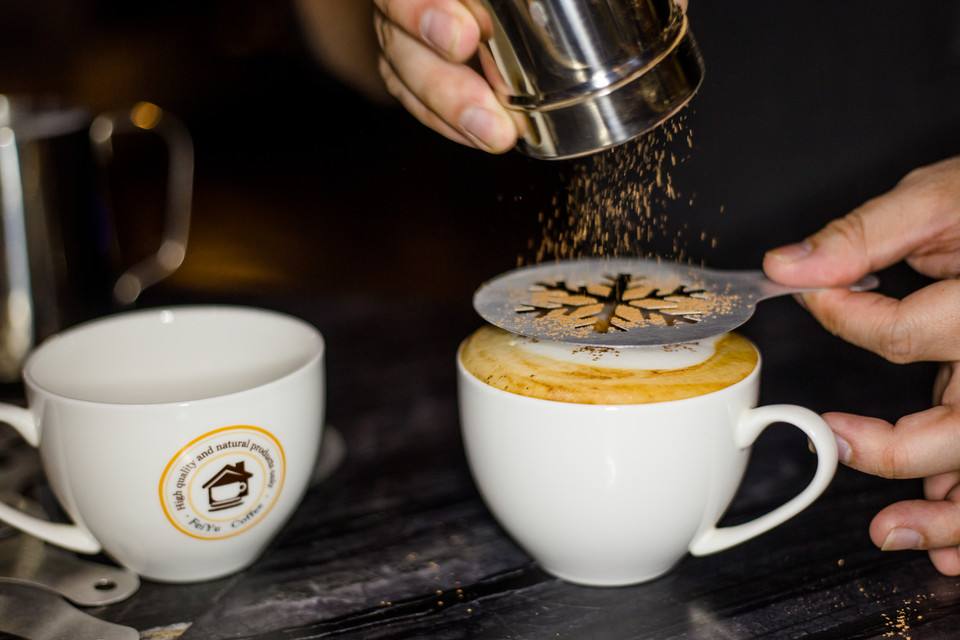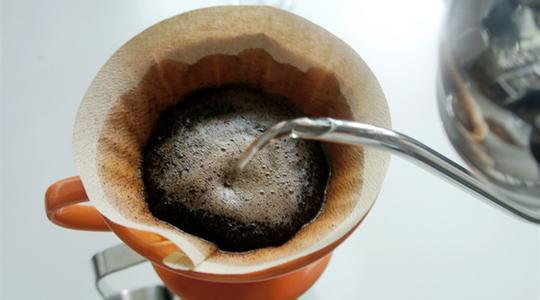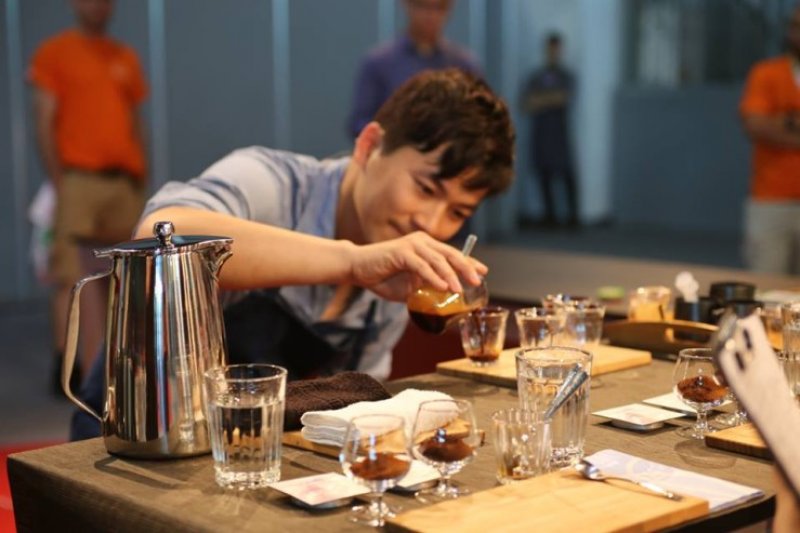From apprentice to barista, the introduction begins with coffee beans.
Pay attention to coffee reviews (Weixin Official Accounts vdailycom ) and find a beautiful cafe to open your own shop
If you want to be a barista professional knowledge, you should know that coffee is no stranger to Hong Kong people, and there are many more fans. Some people love to taste it, others love to study it. Not many people love it so much that they give up their original jobs and switch to the coffee industry to become their own business. The coffee course instructor, Zhong Mingyan, is one of the successful examples.
Start with coffee.
"In fact, there are still many people in Hong Kong who have a misunderstanding about coffee. They think that drinking coffee will cause insomnia. This is a partial understanding. Reeves, currently a coffee course instructor of the Young Men's Christian Association (YMCA ), is an accredited trainer and adjudicator of the City & Guilds International Coffee Blenders Course. He has served as adjudicator in several Barista Competition and Siphon Barista Competition, and won the third and fifth prizes in the Coffee and Food Blending Competition and Hong Kong Coffee Masters Competition 2015 respectively.
Reeves said that if you choose high-quality coffee beans to blend, it has at least twice as much caffeine as three-in-one instant coffee, which means that you have twice as much chance of insomnia, so everything depends on your choice. Reeves thought back to six years ago, when he worked as a clerical worker after graduating from university. He looked at many figures every day and wondered. He always hoped for a change in his future. He only knew that he was interested in coffee, but he did not have full professional knowledge. Therefore, he decided to seriously look for relevant courses to enrol. Finally, he chose to enrol in the "Coffee Blenders Qualification Course" jointly organized by YMCA Professional and Continuing College and City & Guilds. "The course teaches coffee related knowledge in simple terms, such as how to pick beans, how to operate the machine, how to pull flowers, how to make different styles of coffee and drinks, etc. All equipment is not easy to access outside. Reeves added that due to the high acceptance of the course, he successfully joined the coffee blending profession after completing the course.

Developing coffee culture
Reeves started at a low level and became more enthusiastic about coffee. He founded his own coffee shop in 2011, and then joined other like-minded people to transform into wholesale baking supplies and equipment. In addition to wholesale supplies, there are coffee training classes, and each trainer has completed the City & Guilds International Coffee Blenders Course. The coffee culture in Hong Kong is still far from that in Europe. Take Black coffee as an example. Nordic people have a higher acceptance level and will respect the original flavor of coffee. High-quality coffee beans will retain the original sweet and sour taste of the fruit, so their Black coffee tastes higher and less bitter. In Hong Kong, on the other hand, many people still think that coffee should taste bitter and that it must be sweetened and laced. Reeves described the coffee culture in both places as akin to that of kindergarten students and university students, so Hong Kong still has a lot of room for improvement.
Related Reading:
French coffee culture
The French drink coffee slowly, taste carefully, read books and newspapers, talk loudly, and a "bubble" is most of the day. Because of this traditional and unique coffee culture, France allows people to rest and drink coffee all over the streets, under the shade of trees, beside the road, on the square, on the river bank, on the cruise ship, on the balcony facing the street, and even on the Eiffel Tower... and the form, style, size eclectic, there are coffee shops, restaurants, rooms.
The most popular and romantic are the outdoor cafes, which are almost a portrayal of French life. Many outdoor cafes occupy public places, such as the square circle corner, the street corner sidewalk, even in the crowded Champs Elysees, the colorful parasols become a unique street scene in Paris. Almost all the chairs in the coffee seats are arranged facing the road. Sitting in this intentionally designed audience seat, the road in front of you is the big stage where the script never repeats.
In addition to the open-air cafes that look up to the sky, there are about 170,000 cafes in France, many of which are grand or simple and elegant. Especially in Paris, some cafes are historical and legendary places in themselves. During the Old Dynasty of the Middle Ages, the centre of cultural life in France was at court. In the 18th century, during the Age of Enlightenment, the cultural center of gravity began to shift to salons, clubs, and cafes. Cafe Le ProcoPe in the Latin Quarter, for example, is associated with the French Revolution, which affected the whole world more than 200 years ago. Voltaire, Rousseau and Diderot, thinkers of the 18th century European Enlightenment, as well as Robespierre, Danton and Marat, the three heroes of the Great Revolution, are frequent visitors here. Voltaire's books, Diderot's world's first encyclopedia, etc. were written here, and the red, white and blue tricolour hat symbolized by the Great Revolution also appeared here for the first time.
Important Notice :
前街咖啡 FrontStreet Coffee has moved to new addredd:
FrontStreet Coffee Address: 315,Donghua East Road,GuangZhou
Tel:020 38364473
- Prev

The three keys to being a good barista, how to be a good barista?
When most coffee shop owners hire baristas, the most important thing is not a job seeker who is skilled in brewing coffee. They pay more attention to first impressions, including conversation, appearance and basic knowledge of coffee. After successful entry into the industry, in addition to coffee knowledge and technology, in fact, many beginners ignore the following three points. If you start to improve yourself from the following aspects, the boss is bound to change.
- Next

Wu Zelin, a Taiwanese coffee master, came to his world together.
Jiang Xun, a master of aesthetics, once said that when sour and bitter tastes are combined with life, they will eventually become memories of life. Think that coffee is not like life, for people who like coffee, the unique sour taste of coffee beans or the bitterness gradually produced after baking are charming features, making the subsequent Ganyun flavor more hierarchical. With Wu Zelin Berg, who had just won the championship of Taiwan coffee master for the third time in a row.
Related
- What is the meaning of lactic acid fermentation with coffee bean treatment?
- How to judge the state of foam by sound?
- How does the latte pull out the unicorn pattern? Come to get for a little trick to improve the flower pull!
- Will flower pulling affect the taste of the latte?
- Do you know the history of coffee?
- The difference between honey treatment and sun washing what is raisin honey treatment?
- What kind of milk can a novice use to make coffee foam to keep the foam longer? The correct method and skills of milking tutorial sharing
- Why do washed coffee beans taste sour? Flavor characteristics of washed Coffee
- Introduction to the skill of how to practice the size and height of water injection around the circle of hand-brewed coffee
- How do beginners practice coffee flower drawing from scratch?

